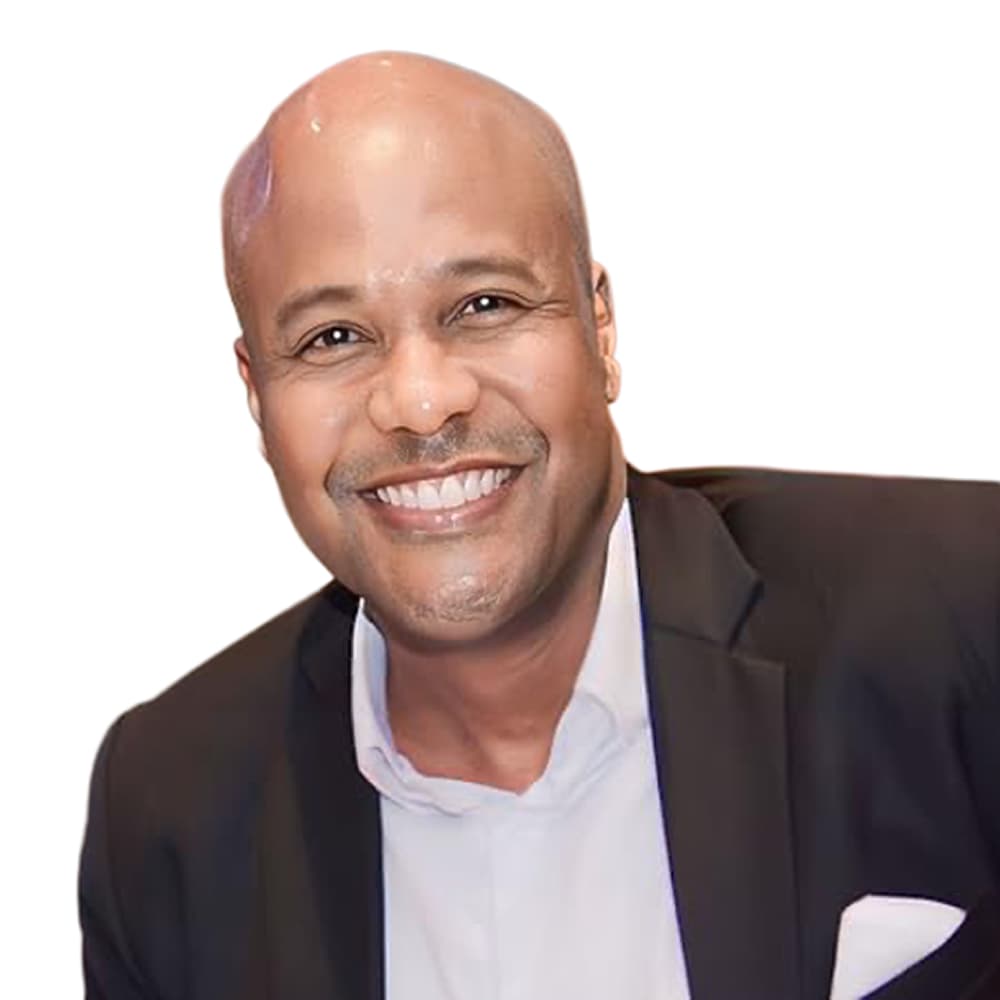“Second citizenship used to be about perks. Today, it’s about survival.”
“Second citizenship used to be about perks. Today, it’s about survival.”
“Second citizenship used to be about perks. Today, it’s about survival.”

Introduction
As borders blur and capital flows more freely than ever, a new breed of entrepreneur, investor, and internationally mobile family is confronting a complex reality: global tax compliance requires not only attention to numbers but also a focus on trust, timing, and truth. And in an age of "finfluencers" and financial misinformation, even that is under siege.
We sat down with Derren Joseph, an international tax expert who is admitted to practice before the IRS, and Chair of the Asia-Pacific Tax Working Group for Moores Rowland Asia Pacific, to decode the blind spots, the shifts, and the survival strategies shaping cross-border wealth today.
Welcome to the Age of the “Freedom Portfolio”
“Second citizenship used to be about perks: lower taxes, visa-free travel,” Joseph says. “Today, it’s about survival. Families want options. They want backup plans.”
Citizenship has become less about identity and more about insurance. In a world rocked by pandemics, war, inflation, and rising political uncertainty, wealthy individuals are building what Joseph calls “freedom portfolios” - a basket of residences, passports, and legal rights designed to outlast any one nation’s instability.
During COVID, many realized their passports were only as powerful as their governments’ pandemic policies. That led to a boom in residency-by-investment (RBI) programs and “golden visas,” which have expanded beyond oligarchs and oil barons to include crypto founders, tech workers, and even middle-class professionals.
“There are now over 60 countries offering digital nomad visas,” Joseph points out. “But what’s striking is the shift in psychology. People aren’t necessarily looking to move forever - they’re looking for access on demand.”
Influencers, Audits, and the TikTok Tax Trap
Not all access, however, is created equal. The explosion of financial content on social media has created what Joseph calls a dangerous “tax entertainment industry.”
“The IRS added influencer-led schemes to its ‘Dirty Dozen’ scam list for a reason,” he says. “People are being misled into risky or outright fraudulent strategies.”
Joseph cites the case of John Anthony Castro, a YouTube tax advisor with slick branding and “guaranteed tax savings,” who was convicted on 33 counts of fraud in 2024. “The scary part is he wasn’t some anonymous TikToker. He had credentials. He used legal-sounding language. That’s what made it dangerous.”
His advice is simple: If the tax advice comes with a Lambo in the background, swipe left.
Where You Live Isn’t Always Where You’re Taxed
A major blind spot among international entrepreneurs and expats? Assuming that physically leaving a country severs all tax ties.
“It doesn’t,” Joseph says. “Especially not if that country is the U.S.”
The U.S. has one of the world’s most complex tax codes, and its tentacles stretch far and wide. Americans abroad, green card holders, and even accidental American citizens are often shocked to find they still have IRS obligations, even after they’ve left.
Exit strategies require careful choreography. Joseph explains that if you are considered a "covered expatriate," meaning you have net assets over $2 million or a high average tax liability, you may owe an exit tax as if you sold all your global assets the day before you renounced.
Smart planning before expatriation can reduce tax exposure on capital gains, retirement accounts, and even trusts. But leave it too late? “You’re locked in. And the IRS doesn’t negotiate after the fact.”
Trusts, Wrappers, and the Myth of the Magic Structure
In an era where asset protection is trending on TikTok, Joseph wants to clarify one thing: there is no silver bullet.
“Trusts, foundations, insurance wrappers: they’re all still incredibly valuable. But they only work when tailored to your life, your risks, and your jurisdictional exposure.”
Too often, people try to copy-paste strategies that worked for someone else. “A structure that’s perfect for a German executive with EU assets might be a disaster for a Singaporean founder with crypto and U.S. shares,” Joseph warns.
He urges clients to consider three dimensions:
- Personal risk profile – What are you protecting against? Lawsuits? Creditors? Divorce?
- Asset composition – Real estate? Crypto? IP? Business interests?
- Jurisdictional alignment – Where are your threats? Where are your banks? Where are your courts?
And yes, it matters where your structure lives. That’s why Joseph is increasingly steering clients away from traditional offshore havens.
Why Onshore Is the New Offshore
For decades, Caribbean and Middle Eastern jurisdictions dominated the offshore planning space. But banks are getting stricter, regulators are cracking down, and reputational risk has become a serious concern.
“My preference? The UK,” Joseph says, unapologetically.
That may surprise some, given the UK’s tax-heavy reputation, but Joseph makes a compelling case:
- The UK uses a narrow definition of “beneficial owner,” often shielding settlors and beneficiaries under its PSC rules.
- Non-resident trusts in the UK don’t need to register or file with HMRC under most circumstances.
- Properly layered with an insurance wrapper or underlying entity, some UK companies can even file as dormant, avoiding costly audits.
- And most importantly, top-tier banks still welcome UK structures.
“Oh, and no wealth tax,” Joseph adds with a grin.
The Death of the Nominee Director
Among international entrepreneurs, Joseph sees another trend: the slow decline of nominee structures.
“For years, people relied on nominee directors or shareholders to hide ownership,” he says. “But today, that looks more like a liability than a shield.”
Banks flag it. Regulators challenge it. And under global disclosure regimes like FATCA, CRS, and the new OECD CARF rules, hiding behind proxies is becoming increasingly untenable.
Instead, clients are opting for protector-controlled trusts or private foundations. These structures provide both flexibility and transparency while allowing them to maintain control.
“If your strategy depends on secrecy,” Joseph warns, “you’re probably doing something wrong.”
Final Word: Don’t Just Plan for Wealth. Plan for Control.
In a world where algorithms know your net worth and governments can lock down entire economies overnight, Joseph’s core message resonates: Planning isn’t just about taxes. It’s about freedom.
“You can’t afford to wing it anymore,” he says. “The rules have changed. The world has changed. Your wealth plan should too.”
For families building legacies, entrepreneurs scaling cross-border ventures, and founders embracing mobility as a lifestyle, the future belongs to those who prepare, not panic.
And for those ready to think globally, act transparently, and plan with precision?
That future looks bright - even if the passports are a little heavier.

About the Author
Derren Joseph is an international tax strategist and Enrolled Agent authorized to represent clients before the IRS. He advises global entrepreneurs, expats, and investors on cross-border tax, asset protection, and compliance.
He chairs the Tax Working Group for Moores Rowland Asia Pacific and holds advisory roles with the IBSA, Caribbean Chamber of Commerce in Europe, and Vlogmi. Derren holds two master’s degrees in economics, a Harvard tax qualification, and executive training from Columbia and NYU. He’s been featured in Bloomberg, The New York Times, and Forbes, and has authored three books on international tax.
Introduction
As borders blur and capital flows more freely than ever, a new breed of entrepreneur, investor, and internationally mobile family is confronting a complex reality: global tax compliance requires not only attention to numbers but also a focus on trust, timing, and truth. And in an age of "finfluencers" and financial misinformation, even that is under siege.
We sat down with Derren Joseph, an international tax expert who is admitted to practice before the IRS, and Chair of the Asia-Pacific Tax Working Group for Moores Rowland Asia Pacific, to decode the blind spots, the shifts, and the survival strategies shaping cross-border wealth today.
Welcome to the Age of the “Freedom Portfolio”
“Second citizenship used to be about perks: lower taxes, visa-free travel,” Joseph says. “Today, it’s about survival. Families want options. They want backup plans.”
Citizenship has become less about identity and more about insurance. In a world rocked by pandemics, war, inflation, and rising political uncertainty, wealthy individuals are building what Joseph calls “freedom portfolios” - a basket of residences, passports, and legal rights designed to outlast any one nation’s instability.
During COVID, many realized their passports were only as powerful as their governments’ pandemic policies. That led to a boom in residency-by-investment (RBI) programs and “golden visas,” which have expanded beyond oligarchs and oil barons to include crypto founders, tech workers, and even middle-class professionals.
“There are now over 60 countries offering digital nomad visas,” Joseph points out. “But what’s striking is the shift in psychology. People aren’t necessarily looking to move forever - they’re looking for access on demand.”
Influencers, Audits, and the TikTok Tax Trap
Not all access, however, is created equal. The explosion of financial content on social media has created what Joseph calls a dangerous “tax entertainment industry.”
“The IRS added influencer-led schemes to its ‘Dirty Dozen’ scam list for a reason,” he says. “People are being misled into risky or outright fraudulent strategies.”
Joseph cites the case of John Anthony Castro, a YouTube tax advisor with slick branding and “guaranteed tax savings,” who was convicted on 33 counts of fraud in 2024. “The scary part is he wasn’t some anonymous TikToker. He had credentials. He used legal-sounding language. That’s what made it dangerous.”
His advice is simple: If the tax advice comes with a Lambo in the background, swipe left.
Where You Live Isn’t Always Where You’re Taxed
A major blind spot among international entrepreneurs and expats? Assuming that physically leaving a country severs all tax ties.
“It doesn’t,” Joseph says. “Especially not if that country is the U.S.”
The U.S. has one of the world’s most complex tax codes, and its tentacles stretch far and wide. Americans abroad, green card holders, and even accidental American citizens are often shocked to find they still have IRS obligations, even after they’ve left.
Exit strategies require careful choreography. Joseph explains that if you are considered a "covered expatriate," meaning you have net assets over $2 million or a high average tax liability, you may owe an exit tax as if you sold all your global assets the day before you renounced.
Smart planning before expatriation can reduce tax exposure on capital gains, retirement accounts, and even trusts. But leave it too late? “You’re locked in. And the IRS doesn’t negotiate after the fact.”
Trusts, Wrappers, and the Myth of the Magic Structure
In an era where asset protection is trending on TikTok, Joseph wants to clarify one thing: there is no silver bullet.
“Trusts, foundations, insurance wrappers: they’re all still incredibly valuable. But they only work when tailored to your life, your risks, and your jurisdictional exposure.”
Too often, people try to copy-paste strategies that worked for someone else. “A structure that’s perfect for a German executive with EU assets might be a disaster for a Singaporean founder with crypto and U.S. shares,” Joseph warns.
He urges clients to consider three dimensions:
- Personal risk profile – What are you protecting against? Lawsuits? Creditors? Divorce?
- Asset composition – Real estate? Crypto? IP? Business interests?
- Jurisdictional alignment – Where are your threats? Where are your banks? Where are your courts?
And yes, it matters where your structure lives. That’s why Joseph is increasingly steering clients away from traditional offshore havens.
Why Onshore Is the New Offshore
For decades, Caribbean and Middle Eastern jurisdictions dominated the offshore planning space. But banks are getting stricter, regulators are cracking down, and reputational risk has become a serious concern.
“My preference? The UK,” Joseph says, unapologetically.
That may surprise some, given the UK’s tax-heavy reputation, but Joseph makes a compelling case:
- The UK uses a narrow definition of “beneficial owner,” often shielding settlors and beneficiaries under its PSC rules.
- Non-resident trusts in the UK don’t need to register or file with HMRC under most circumstances.
- Properly layered with an insurance wrapper or underlying entity, some UK companies can even file as dormant, avoiding costly audits.
- And most importantly, top-tier banks still welcome UK structures.
“Oh, and no wealth tax,” Joseph adds with a grin.
The Death of the Nominee Director
Among international entrepreneurs, Joseph sees another trend: the slow decline of nominee structures.
“For years, people relied on nominee directors or shareholders to hide ownership,” he says. “But today, that looks more like a liability than a shield.”
Banks flag it. Regulators challenge it. And under global disclosure regimes like FATCA, CRS, and the new OECD CARF rules, hiding behind proxies is becoming increasingly untenable.
Instead, clients are opting for protector-controlled trusts or private foundations. These structures provide both flexibility and transparency while allowing them to maintain control.
“If your strategy depends on secrecy,” Joseph warns, “you’re probably doing something wrong.”
Final Word: Don’t Just Plan for Wealth. Plan for Control.
In a world where algorithms know your net worth and governments can lock down entire economies overnight, Joseph’s core message resonates: Planning isn’t just about taxes. It’s about freedom.
“You can’t afford to wing it anymore,” he says. “The rules have changed. The world has changed. Your wealth plan should too.”
For families building legacies, entrepreneurs scaling cross-border ventures, and founders embracing mobility as a lifestyle, the future belongs to those who prepare, not panic.
And for those ready to think globally, act transparently, and plan with precision?
That future looks bright - even if the passports are a little heavier.

About the Author
Derren Joseph is an international tax strategist and Enrolled Agent authorized to represent clients before the IRS. He advises global entrepreneurs, expats, and investors on cross-border tax, asset protection, and compliance.
He chairs the Tax Working Group for Moores Rowland Asia Pacific and holds advisory roles with the IBSA, Caribbean Chamber of Commerce in Europe, and Vlogmi. Derren holds two master’s degrees in economics, a Harvard tax qualification, and executive training from Columbia and NYU. He’s been featured in Bloomberg, The New York Times, and Forbes, and has authored three books on international tax.
Introduction
As borders blur and capital flows more freely than ever, a new breed of entrepreneur, investor, and internationally mobile family is confronting a complex reality: global tax compliance requires not only attention to numbers but also a focus on trust, timing, and truth. And in an age of "finfluencers" and financial misinformation, even that is under siege.
We sat down with Derren Joseph, an international tax expert who is admitted to practice before the IRS, and Chair of the Asia-Pacific Tax Working Group for Moores Rowland Asia Pacific, to decode the blind spots, the shifts, and the survival strategies shaping cross-border wealth today.
Welcome to the Age of the “Freedom Portfolio”
“Second citizenship used to be about perks: lower taxes, visa-free travel,” Joseph says. “Today, it’s about survival. Families want options. They want backup plans.”
Citizenship has become less about identity and more about insurance. In a world rocked by pandemics, war, inflation, and rising political uncertainty, wealthy individuals are building what Joseph calls “freedom portfolios” - a basket of residences, passports, and legal rights designed to outlast any one nation’s instability.
During COVID, many realized their passports were only as powerful as their governments’ pandemic policies. That led to a boom in residency-by-investment (RBI) programs and “golden visas,” which have expanded beyond oligarchs and oil barons to include crypto founders, tech workers, and even middle-class professionals.
“There are now over 60 countries offering digital nomad visas,” Joseph points out. “But what’s striking is the shift in psychology. People aren’t necessarily looking to move forever - they’re looking for access on demand.”
Influencers, Audits, and the TikTok Tax Trap
Not all access, however, is created equal. The explosion of financial content on social media has created what Joseph calls a dangerous “tax entertainment industry.”
“The IRS added influencer-led schemes to its ‘Dirty Dozen’ scam list for a reason,” he says. “People are being misled into risky or outright fraudulent strategies.”
Joseph cites the case of John Anthony Castro, a YouTube tax advisor with slick branding and “guaranteed tax savings,” who was convicted on 33 counts of fraud in 2024. “The scary part is he wasn’t some anonymous TikToker. He had credentials. He used legal-sounding language. That’s what made it dangerous.”
His advice is simple: If the tax advice comes with a Lambo in the background, swipe left.
Where You Live Isn’t Always Where You’re Taxed
A major blind spot among international entrepreneurs and expats? Assuming that physically leaving a country severs all tax ties.
“It doesn’t,” Joseph says. “Especially not if that country is the U.S.”
The U.S. has one of the world’s most complex tax codes, and its tentacles stretch far and wide. Americans abroad, green card holders, and even accidental American citizens are often shocked to find they still have IRS obligations, even after they’ve left.
Exit strategies require careful choreography. Joseph explains that if you are considered a "covered expatriate," meaning you have net assets over $2 million or a high average tax liability, you may owe an exit tax as if you sold all your global assets the day before you renounced.
Smart planning before expatriation can reduce tax exposure on capital gains, retirement accounts, and even trusts. But leave it too late? “You’re locked in. And the IRS doesn’t negotiate after the fact.”
Trusts, Wrappers, and the Myth of the Magic Structure
In an era where asset protection is trending on TikTok, Joseph wants to clarify one thing: there is no silver bullet.
“Trusts, foundations, insurance wrappers: they’re all still incredibly valuable. But they only work when tailored to your life, your risks, and your jurisdictional exposure.”
Too often, people try to copy-paste strategies that worked for someone else. “A structure that’s perfect for a German executive with EU assets might be a disaster for a Singaporean founder with crypto and U.S. shares,” Joseph warns.
He urges clients to consider three dimensions:
- Personal risk profile – What are you protecting against? Lawsuits? Creditors? Divorce?
- Asset composition – Real estate? Crypto? IP? Business interests?
- Jurisdictional alignment – Where are your threats? Where are your banks? Where are your courts?
And yes, it matters where your structure lives. That’s why Joseph is increasingly steering clients away from traditional offshore havens.
Why Onshore Is the New Offshore
For decades, Caribbean and Middle Eastern jurisdictions dominated the offshore planning space. But banks are getting stricter, regulators are cracking down, and reputational risk has become a serious concern.
“My preference? The UK,” Joseph says, unapologetically.
That may surprise some, given the UK’s tax-heavy reputation, but Joseph makes a compelling case:
- The UK uses a narrow definition of “beneficial owner,” often shielding settlors and beneficiaries under its PSC rules.
- Non-resident trusts in the UK don’t need to register or file with HMRC under most circumstances.
- Properly layered with an insurance wrapper or underlying entity, some UK companies can even file as dormant, avoiding costly audits.
- And most importantly, top-tier banks still welcome UK structures.
“Oh, and no wealth tax,” Joseph adds with a grin.
The Death of the Nominee Director
Among international entrepreneurs, Joseph sees another trend: the slow decline of nominee structures.
“For years, people relied on nominee directors or shareholders to hide ownership,” he says. “But today, that looks more like a liability than a shield.”
Banks flag it. Regulators challenge it. And under global disclosure regimes like FATCA, CRS, and the new OECD CARF rules, hiding behind proxies is becoming increasingly untenable.
Instead, clients are opting for protector-controlled trusts or private foundations. These structures provide both flexibility and transparency while allowing them to maintain control.
“If your strategy depends on secrecy,” Joseph warns, “you’re probably doing something wrong.”
Final Word: Don’t Just Plan for Wealth. Plan for Control.
In a world where algorithms know your net worth and governments can lock down entire economies overnight, Joseph’s core message resonates: Planning isn’t just about taxes. It’s about freedom.
“You can’t afford to wing it anymore,” he says. “The rules have changed. The world has changed. Your wealth plan should too.”
For families building legacies, entrepreneurs scaling cross-border ventures, and founders embracing mobility as a lifestyle, the future belongs to those who prepare, not panic.
And for those ready to think globally, act transparently, and plan with precision?
That future looks bright - even if the passports are a little heavier.

About the Author
Derren Joseph is an international tax strategist and Enrolled Agent authorized to represent clients before the IRS. He advises global entrepreneurs, expats, and investors on cross-border tax, asset protection, and compliance.
He chairs the Tax Working Group for Moores Rowland Asia Pacific and holds advisory roles with the IBSA, Caribbean Chamber of Commerce in Europe, and Vlogmi. Derren holds two master’s degrees in economics, a Harvard tax qualification, and executive training from Columbia and NYU. He’s been featured in Bloomberg, The New York Times, and Forbes, and has authored three books on international tax.

Contributors












Articles